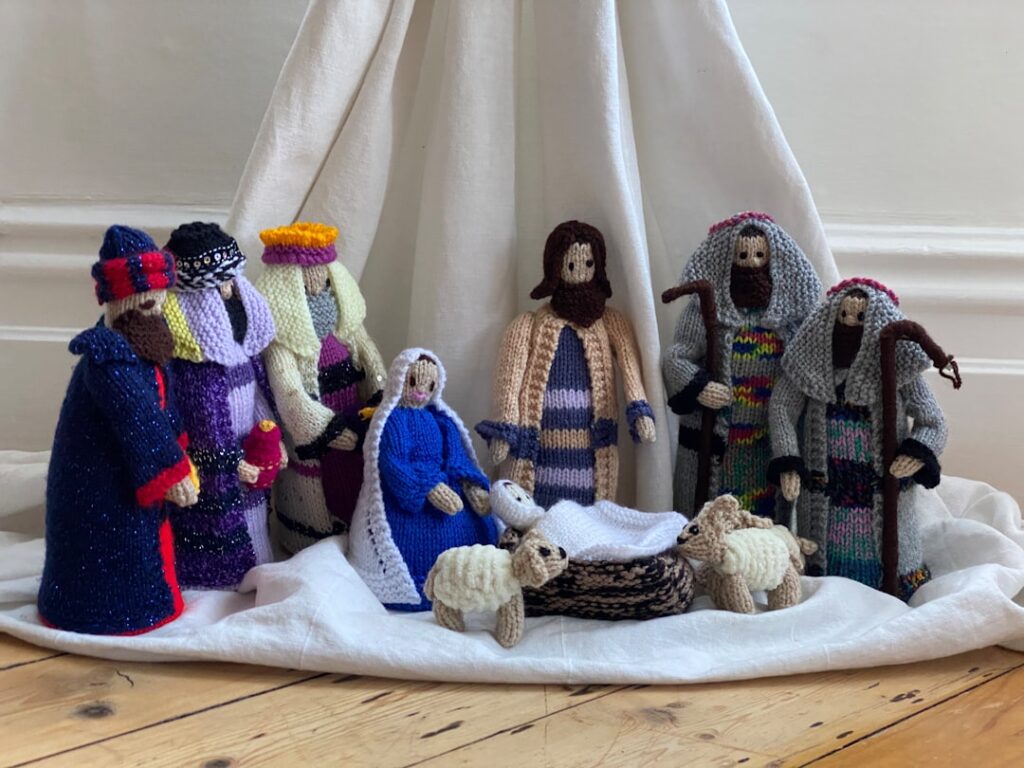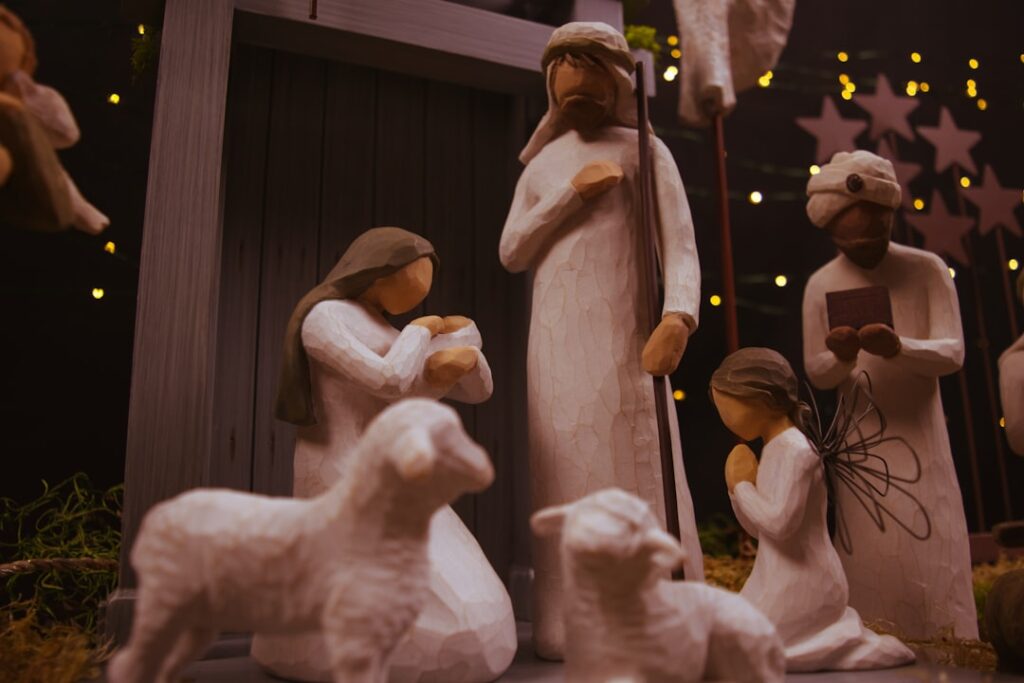
What’s the best gift you’ve ever been given at Christmas? More than likely, you’ll find yourself lost for words, scrambling through your memories.
Some gifts are practical—clothes, kitchen utensils, and so on. Others bring pure joy and great purpose. But have you ever received three gifts that no one else in the world received—guaranteed? That’s precisely what happened in the Christmas narrative we hold so dear.
Location: Bethlehem.
A place you’d likely drive past without noticing. A town so small it barely registers on Google Maps. Yet here it is—blink and you’ll miss it, tucked into the folds of history like an afterthought. Except, it isn’t. Bethlehem is where the story turns for the world. It’s where eternity breaks into time, where God does the unexpected. And He does it quietly: a stable, a feeding trough, a baby. It’s audacious, unprecedented, and utterly unexpected—exactly how you’d expect God to do something so immense.
It’s Christmas, but not the Christmas we know. No tinsel, carols, turkey, Brussels sprouts, Christmas pudding with brandy flambé, or crackers. Instead, it’s a night heavy with mystery. Shepherds huddle in the fields, staring at a UHD 4K visual explosion of dazzling angels and a full worship choir in Dolby Atmos. Elsewhere, not far away, Mary and Joseph settle in for what will be a long night—one that will leave them wondering far into the future. They are resting, but their journey has truly just begun. Somewhere far off, those strangers with maps, telescopes, and perhaps an ancient GPS are on their way, following an unusual, bright star.
Men from the East—wise men—Magi—call them what you will, they’ve travelled great distances, trudging dusty roads and reading the skies as though the heavens were whispering secrets meant just for them. In the dark, when they finally arrive, they kneel before a baby and open their treasure chests. What on earth?
Gold. Frankincense. Myrrh.
These aren’t Argos or Home Bargains last-minute gifts picked up on the way to a baby shower. No rattles, teddies, blankets, or cute little size-one onesies from Next. Gold for a baby? Frankincense for a baby? Myrrh for a baby? Really? Who does that—and why?
The magi knew exactly what they were doing. They didn’t bring ordinary gifts because this wasn’t an ordinary child. These gifts were symbols—statements, declarations. They spoke a truth so profound that it would take centuries to fully grasp. You’re still grasping the significance yourself.
Gold
I’ll take a guess at it being 24k pure gold—nothing added. The gift of kings. It’s not practical—it won’t change nappies or rock a crying baby to sleep. Gold is the kind of gift you give to someone with authority, someone in charge. Gold is royal. It declares that this child is King. Not just any king—the King. The one the prophets spoke of, the one whose reign will never end. How much? Well, it was enough—for a baby who is enough.
This is no ordinary kingship. Jesus isn’t a king like Caesar, throwing his weight around, wielding power through armies and taxes. No, this King flips the script. He washes feet, touches lepers, welcomes children, heals the sick, and raises the dead. His kingdom is built not with swords but with love, grace, and truth. The shimmering gold, glowing in the dim light of a stable, declares this humble child to be the ruler of all creation. Radically, this is the King who will one day trade a throne for a cross—a King who wears a crown of thorns and calls it glory.
Frankincense
The next gift pulled from the magi’s treasures fills the air with fragrance. Incense is for the temple, for prayer, for worship. Frankincense is what you burn when you’re reaching for the divine, when you long for something holy. For a baby? Not exactly practical. But the magi weren’t being impractical—they were being prophetic.
These gifts are symbolic, and frankincense speaks loudly to us: this child is God. Fully divine. Fully present. Heaven touching earth. “The Word became flesh and dwelt among us” is what you should be hearing whispered in your ear right now. This baby isn’t a symbol or a metaphor. He’s not an angel in disguise or a wise teacher-to-be. This is God in the flesh. God breathing oxygen. God crying out in the cold.
It’s a breath-taking scene. Do you see what’s happening? The infinite has become finite – limited Himself – done the impossible. The Creator has stepped down and entered creation. He hasn’t stayed distant or silent; He’s moved in—close enough to be held, close enough to suffer, close enough to save.
Myrrh
These blokes don’t stop there. There’s another gift—and it’s an odd one, even for this auspicious moment under the stars in Bethlehem. Myrrh. Myrrh?? It must have felt strange, that third gift. One bright shining gift and two fragrant ones. Myrrh is for death. It’s a burial spice, the kind of thing you bring to a tomb—not a nursery. Myrrh speaks of endings, of grief, of sacrifice. It’s the sort of thing Mary Magdalene, Mary the mother of James, and Salome bought so that they might anoint Him 33 years later after His death on the cross.
And that’s the thing: even at His birth, this baby’s future was written. Who even considers death when the joy of new birth is before them? The cross casts its foreboding shadow over the manger. This child—so small, so fragile—was born to die. Not because of some tragic twist of fate, but because this was the plan. Jesus did not come to rule with brute strength but to lay down His life. He came to give Himself away, to stand in the place of sinners, to carry the weight of brokenness and shame.
That’s exactly why the myrrh matters. It’s the strange, prophetic gift that points us from our Christmas Day to Good Friday—to a hill outside Jerusalem where the King would give His life as a ransom for many. This child is born to save, to redeem, to rescue. The baby in the manger will grow up to stretch out His arms on a Roman cross and whisper, It is finished.
The magi saw what no one else did. They knew they were in the presence of royalty, divinity, and sacrifice. Random, weird, strange gifts, yes, but perfect ones. They told the truth about Jesus—who He is and what He came to do. It was a prophetic statement akin to anything Ezekiel, Jeremiah, or Isaiah might call out.
The awesome thing is, these gifts still speak. The gold invites us to bow before the King who rules with love. The frankincense calls us to worship the God who came near. The myrrh reminds us that our Saviour has borne our sin, our pain, our death—so that we might live. Cue Handel’s Messiah, written entirely from Old Testament prophecies, bringing light to the new.
Here we are—this is the gift of Christmas. Jesus Himself. Not a sentimental story or a cosy tradition, but a rescue mission. God giving us Himself.
Smell the incense. Feel the weight of the myrrh. And let the golden wonder of it all sink in.
God’s gift to you? A King. A God. A Saviour.
The gift no one else could give—and yours to receive.






